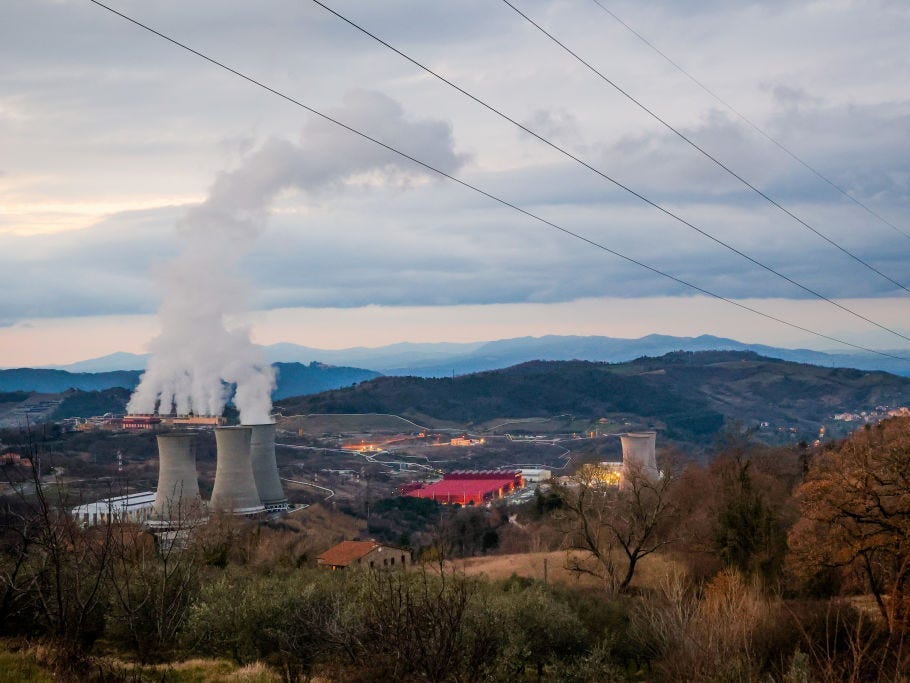- Europe is heading for a energy supply crunch earlier than expected, Rystad Energy said.
- The doom ahead reflects waning supplies as Russia cuts off gas to the region.
- "This is increasingly a matter of 'when' and not 'if' the crisis arrives," Vladimir Petrov said.
Europe is expected to face a power crunch earlier than expected as energy supplies become scarce, energy consultancy Rystad Energy said on Monday.
In a research note, Rystad Energy said the European Union will be underprepared for chaos in the energy markets, especially this winter, as Russia deprives the region of its fuel supplies.
"Europe's options with regards to gas, coal, nuclear and renewables filling the power gap are extremely limited and costly," said Vladimir Petrov, senior power analyst at Rystad Energy.
"The point at which the crisis will bite more deeply is looking closer and closer as we head into the summer and then autumn, this is increasingly a matter of 'when' and not 'if' the crisis arrives," he added.
European energy markets have been under severe strain after Russia cut off its gas supplies to the region while it conducts maintenance on the Nord Stream 1 pipeline. While operations are meant to resume on July 21, fears that Russia will permanently stop providing gas to the region are heating up.
Prior to the maintenance closure of the pipeline, Germany and a number of other countries had already seen a hefty drop in the amount of natural gas that was arriving through Nord Stream, as Russia has been steadily turning off the taps.
It's forced a number of EU member states to tap emergency reserves ahead of the colder months, while others have signaled they would shift back to coal.
Major oil companies have spoken out on Russia's unpredictable behaviour, with the CEO of Shell warning that Europe may have to ration energy to cope with limited supply this winter. Ben Van Beurden said President Vladimir Putin was "able and willing to weaponize energy supplies" and it's likely to lead to escalating pricing.
In France, President Emmanuel Macron asked people to cut down their energy usage in order to avoid a difficult winter, Bloomberg reported.
Such a predicament has contributed to a deteriorating EU economy beset by inflation, higher borrowing rates, and a weakening euro, all signs that suggest there is a rising the risk of a recession.
"Europe's ability to get through the winter will depend on how much can be done during the summer months to decrease demand and increase both imports and domestic production," Petrov said.
